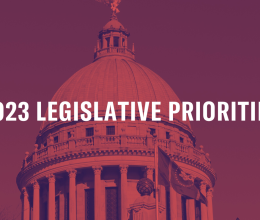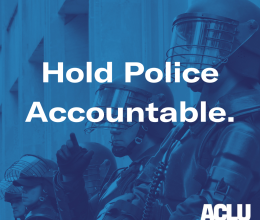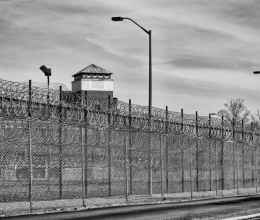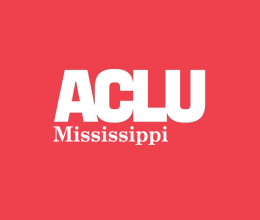By Joshua Tom, ACLU of Mississippi Legal Director
The Mississippi House of Representatives is currently considering House Bill 541, titled “The Mississippi Anti-Gang Act.” HB 541 is rife with problems, all of which cannot be addressed in this editorial. Indeed, it is hard to know where to start in listing the myriad of public policy, constitutional and fairness issues in HB 541. The bill is so flawed, in fact, that the best path forward is to let it die. Since we can only hope for the best, however, I want to focus on one issue: how the bill violates a basic constitutional guarantee. HB 541 violates the fundamental, due process principle that civil or criminal sanctions cannot be imposed without “personal guilt.” In the United States, we do not impose guilt by association. HB 541 does.
The United States is a world leader in incarcerating people. Mississippi in turn is a leader in the United States for its incarceration rates, ranking fourth in the country. Indeed, the biggest driver of incarceration rates in the United States comes from state policy. When incarceration rates in our country started to explode in the 1970s, state prisons took the bulk of those locked up and that continues today. The “War on Drugs,” three-strikes laws, and mandatory minimums all helped drive these increases. If enacted HB 541 would continue in the same vein of these laws and further exacerbate our country’s mass incarceration problem.
While it is in the legislature’s purview to continue to enact mass incarceration policies, however misguided and unjust they may be, any legislative action must comply with the United States Constitution. While preventing illegal gang activity is a compelling goal, we must ensure that even the worthiest goals comply with the Constitution.
HB 541 does not meet this basic constitutional floor because it imposes guilt by association.
While people do not have the right to associate for the purpose of wholly unlawful aims, associations with both legal and illegal goals are a different case. The U.S. Supreme Court has made clear that for the latter, a member cannot be held liable for the association’s illegal activities unless he or she participated in those activities with the specific intent to further the illegal aims. Membership alone in such an association is not enough for legal liability. Holding otherwise would be to impose guilt by association, something we do not do in America. The point is that people should not be sanctioned for the bad acts of others but only for their own bad acts.
Gangs fall within this latter category. In other words, it is a rare gang that engages exclusively in illegal behavior. Gangs may also act as peer groups and social networks, for example. In addition, according to gang experts, there are different levels of participation in a gang: a person may identify himself or herself with a gang for many reasons including recognition, protection or social purposes, none of which involve illegal activities. Accordingly, people may identify as a gang member, but never engage in illegal activity.
Therefore, simply being a member of a gang is not enough to expose someone to civil and criminal liability. The Constitution requires a further showing of that person’s involvement in illegal activity. Making it illegal to simply be a member of a gang penalizes a person for who they choose to associate with, and we do not do that in America.
HB 541 violates this constitutional principle because it imposes both civil and criminal liability for simply being a member of a gang.
Published in the Clarion Ledger





